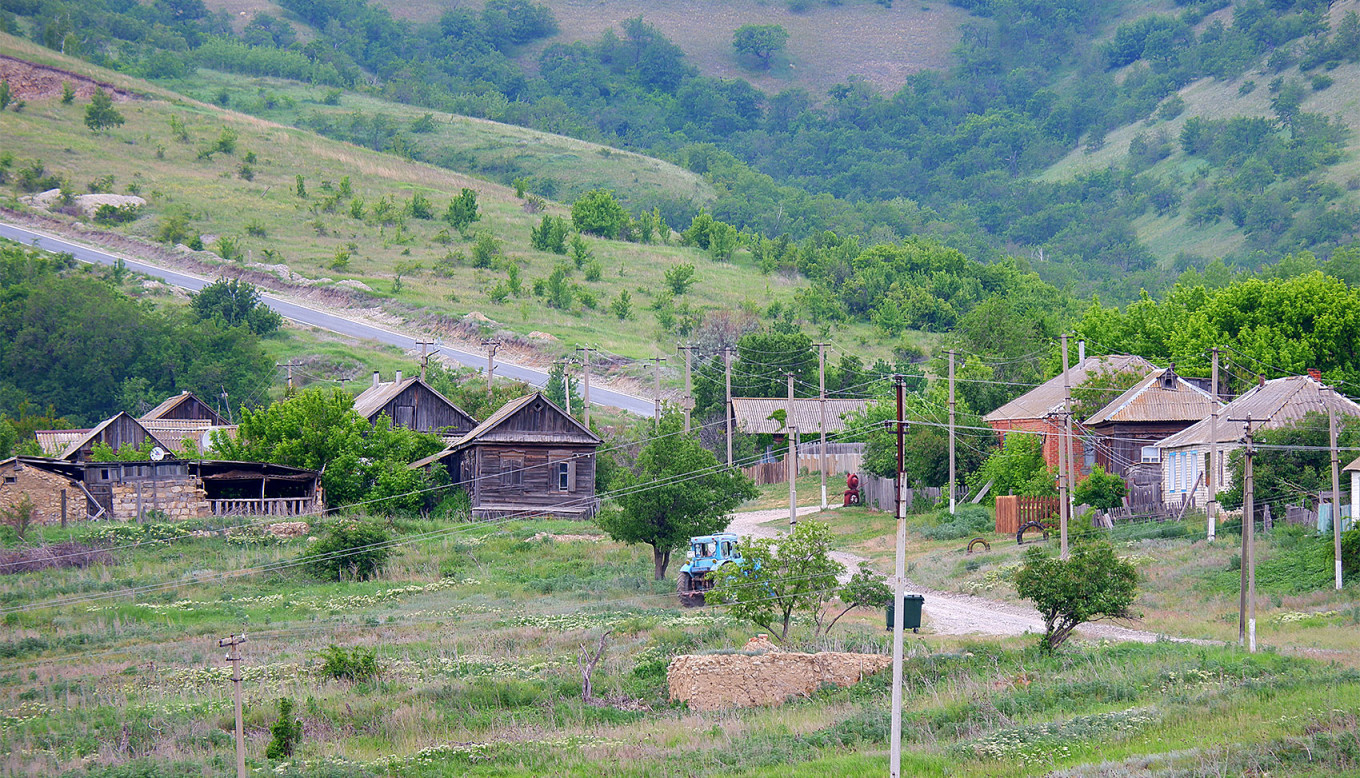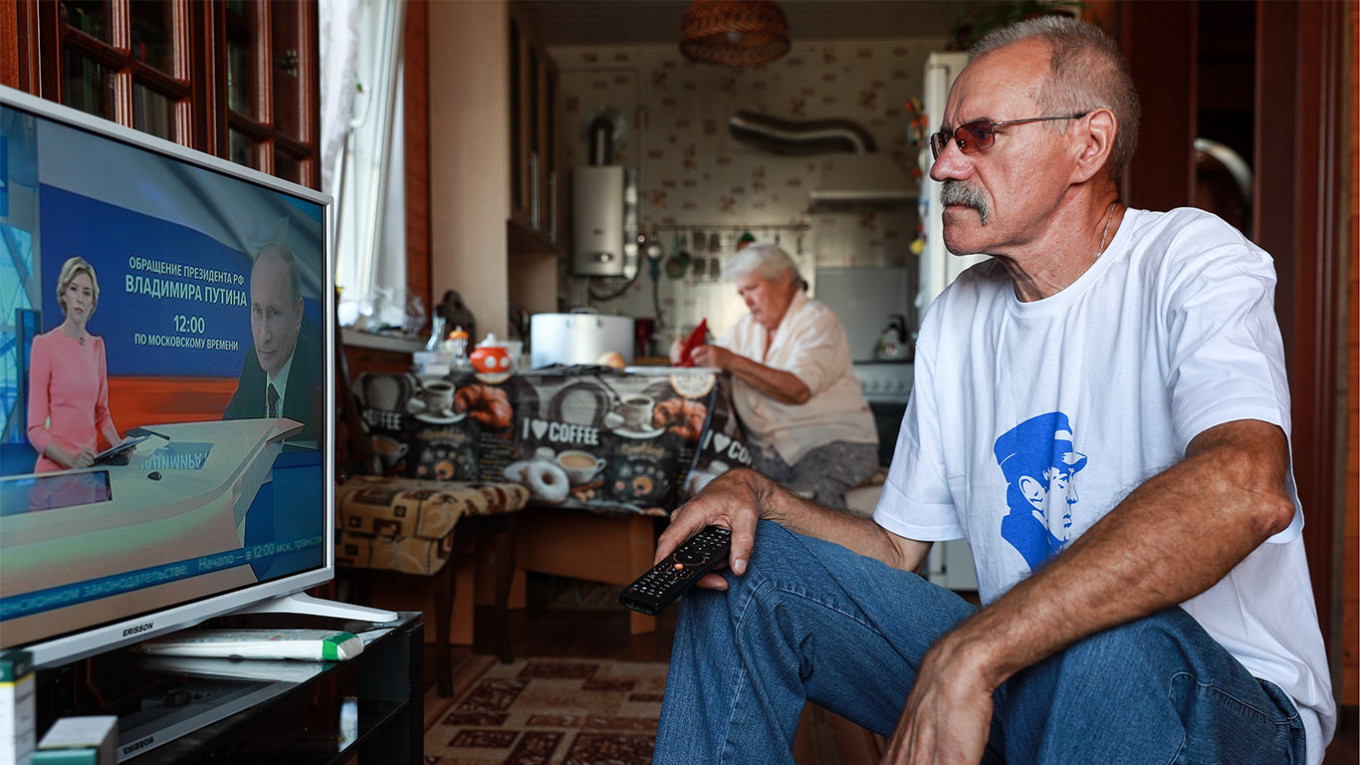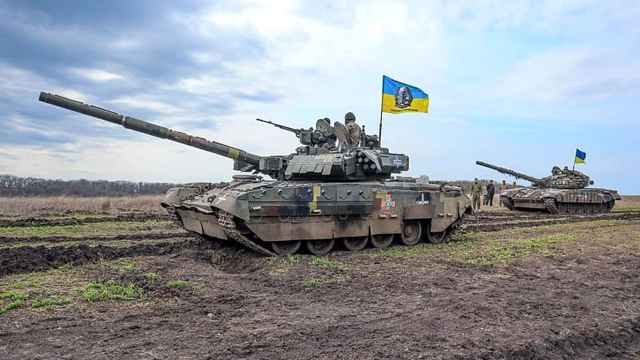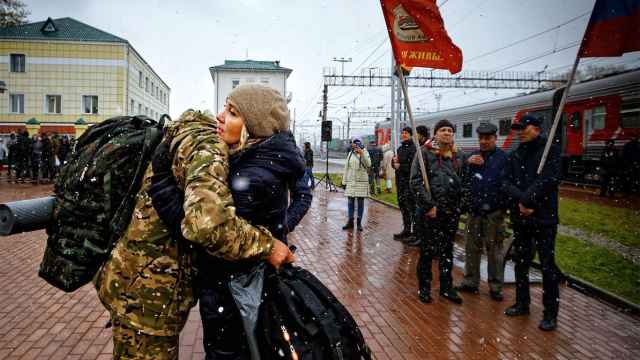The majority of countries all across the globe have condemned Russia’s invasion of Ukraine. But according to statistics in Russia, three-quarters of Russians expressed trust in President Vladimir Putin. In January 2019, the share was 59%, but in June 2023, it stood at 78%. Even if these figures may indicate a fear of answering the pollster truthfully, it seems that a considerable share of the Russian population trusts the Russian president and, apparently by extension, the war he is waging in Ukraine.
But support is not equally distributed across the country. The independent Levada Center found that a higher percentage of people in small towns support the war than in Moscow — almost half (40%) of the rural population supported it, while only a quarter (26%) of Moscow residents expressed support.
Why is support so much higher in more rural areas? The answer is, in part, the nature of propaganda and sources of information, as well as the pressure of poor living conditions.
One of the main sources of Russian propaganda is the Russian media. Public trust in television as a source of information in Russia has declined since 2015, reaching 43% in January 2023. However, the most popular news media in Russia are Vesti.ru, Ria Novosti and Izvestiya. There are no independent media.
“Governmental media don’t lie!” 86-year-old Svetlana said with certainty from a stanitsa (village) in the Krasnodar region. “I can use the Internet, but how can I trust it? I have read a lot of reports that all the photos in Bucha, Mariupol, and other Ukrainian cities are staged. The Nazis make them. How could Russian forces do such a thing? They even carry food for Ukrainian dogs – I saw this on Vesti.ru. I have tried to prove this to my niece in Kyiv, but she doesn’t want to listen to me. She can’t understand that she’s believing their Ukrainian propaganda.”
It might seem logical that older people would have less trust in Russian propaganda because they lived in the Soviet period, but this is not so. Russian historian Tamara Eidelman told The Moscow Times that not everyone thinks that living in the USSR was awful. “For them, this period was their childhood and youth,” she explained, which is often remembered fondly or without understanding the realities faced by the adults in their lives. “In addition, life in the Soviet period did not contribute to the development of critical thinking. On the contrary, people were supposed to take everything on faith. Discussing news was dangerous.”
Tamara Eidelman is the author of the book “How Propaganda Works.” “When I wrote it, I realized that propaganda works the same way in different time periods. For people who grew up in the Soviet Union, the worst word was ‘Nazism.’ So when the Russian media began to write that there were Nazis in Ukraine, many Russians got scared and believed it. Fear is the basis of propaganda. When a person is frightened, critical thinking doesn’t work well. After scaring people, the media showed how Russian forces protected everyone. That was all that was needed.”

Small-town news and small-town economies
The influence of Russian media also depends on the location. “The smaller the city, the stronger the influence of people on each other, and the more dangerous for you to have other opinion,” Eidelman told The Moscow Times.
“I don't mean to say that the inhabitants of small towns justify the war because everyone is afraid to speak up. But it’s more difficult to be against the war when you work in a state organization and there is no other employer in town. And then, propaganda works… the Russian media are trying to create the picture that there are very few opponents to the war,” she said.
In small towns, almost all the local media belong to the government and cover the successes of Russian forces. To make it harder to access information from different sources, problems with internet access appeared in the middle of 2022.
In Lipetsk, for example, a city with a population of just under half a million that is about 450 kilometers (275 miles) southeast of Moscow, people can use VPNs. But in Gryazi, a town of about 50,000 inhabitants only 30 km (18 miles) from Lipetsk, the Internet often doesn’t work at all. So for people in a place like this, it’s much easier to watch the state television channel Vesti.ru than try to get internet access to independent media.
On television, there are no tallies of dead or injured Russian soldiers. People only hear about deaths and casualties from each other. And then many of them simply think going to fight is unavoidable. You hear, “I received call-up papers” or “rather than waiting for call-up papers, it's better to volunteer” or “we need to defend Russia from the Nazis.”
Despite casualties, some draftees are glad to go to war. “In the six months I was there, I could pay off all my debts,” the villager Sergei told The Moscow Times. “I got about 50, 000 rubles ($530) a month. Where can I earn this kind of money in the village?”
That’s why some men go back to fight again.

Enemies all around us
According to Eidelman, the ideas that other countries are enemies of Russia and that Russia has its own way of developing are out of the 19th century. This is a typical claim of many countries that are mis- or underdeveloped. “An inferiority complex turns into megalomania. It's one of the tools in the propaganda toolbox.”
In small towns, people like to talk about foreign attitudes to Russia. Oleg, who lives in a small town in the Lipetsk region, told The Moscow Times that “the United States has never liked Russia. I don't care about their sanctions.” He is absolutely certain of this.
“There are no absolutely independent media. All media have their own values and editorial policies, but in a free society, different opinions can exist,” Eidelman said. “In Russia, in 1865 censorship was abolished. In 1917, the "Decree on the Press" was issued, and on the basis of it, more than 470 opposition newspapers were closed or ceased to exist over the course of a year. In 1990, the U.S.S.R. Law “On the Press and Other Mass Media” came into force and abolished state censorship. It was possible to write and say whatever you wanted. In the 2000s, censorship intensified, despite the fact that it is prohibited by the Russian Constitution,” she said. Since the Russian invasion of Ukraine, the Russian media watchdog monitors news outlets to be sure that they only base their reports “on official Russian sources.”
Eidelman believes it’s possible to get away from propaganda, but this largely depends on where a person lives and works. Many people will have to keep silent in public, as dissidents did during the Soviet period.
And anyone who doesn’t want to remain silent is punished. Not long ago The Moscow Times wrote about an artist from Penza who expressed his strong negative opinion about the war. He was fined 30,000 rubles ($320) for discrediting the Russian military. A repeat offense can lead to imprisonment for up to seven years. Now he is raising money to emigrate from Russia.
A Message from The Moscow Times:
Dear readers,
We are facing unprecedented challenges. Russia's Prosecutor General's Office has designated The Moscow Times as an "undesirable" organization, criminalizing our work and putting our staff at risk of prosecution. This follows our earlier unjust labeling as a "foreign agent."
These actions are direct attempts to silence independent journalism in Russia. The authorities claim our work "discredits the decisions of the Russian leadership." We see things differently: we strive to provide accurate, unbiased reporting on Russia.
We, the journalists of The Moscow Times, refuse to be silenced. But to continue our work, we need your help.
Your support, no matter how small, makes a world of difference. If you can, please support us monthly starting from just $2. It's quick to set up, and every contribution makes a significant impact.
By supporting The Moscow Times, you're defending open, independent journalism in the face of repression. Thank you for standing with us.
Remind me later.






